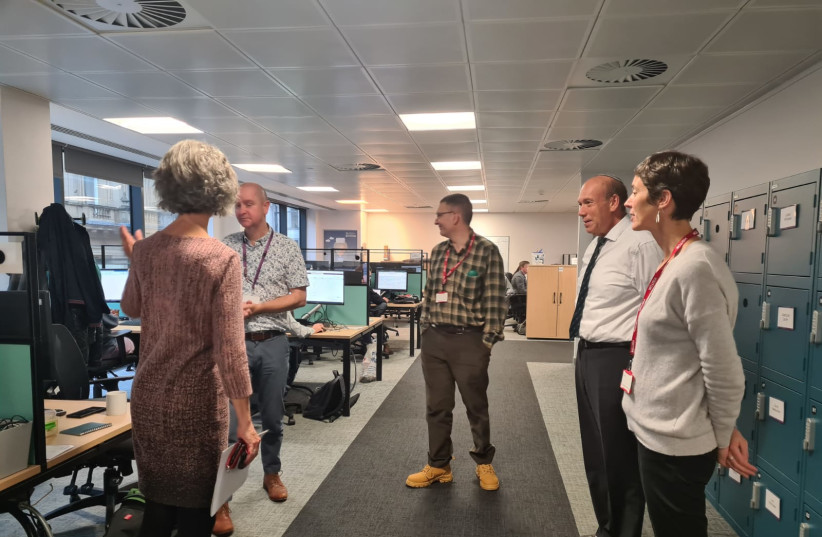State Comptroller Matanyahu Englman recently visited England to carry out a complimentary inspection of one of England’s equivalent watchdog apparatuses, the Jerusalem Post has learned.
During his visit to the UK, Englman was told by British Parliamentary and Health Service Ombudsman Rob Behrens that they want to move closer to Israel’s model for a comptroller in terms of an independent authority to initiate wide-ranging investigations.
Currently, British law only empowers the comptroller to review complaints that are filed to him through a British MP.
This would require a constitutional change in England, so the British ombudsman is seeking Englman’s guidance about how to best make the potential change.
The change would still need to take into account England’s different legal architecture which splits up among multiple public officials and various powers that Englman alone holds in Israel.

That means that Englman’s counterpart can neither initiate system-wide probes beyond any complaints he receives and he cannot receive complaints directly from the public, - only directly if an MP decides to forward a complaint.
Englman will be issuing a full report on his findings in the near future, which will then be publicly debated at the UK parliament around late November.
Sizing up his British counterpart’s workload, Englman views it as split up roughly into 80% complaints related to the health system and 20% to everything else.
The Post understands that Englman thinks England’s health system, like many countries, has gone through an extraordinarily difficult period during and post the worst of the coronavirus era.
What can England do to help newer immigrants?
Englman heard from Behrens that he wants to be more proactive to reach the weaker sectors of society.
In Israel, Englman told him, complaints can be received by the comptroller’s office in a variety of languages, including: Arabic, Russian, English, French and Amharic as well as Hebrew.
In contrast, Behrens’ office only receives complaints in English. This could be a barrier to receiving complaints from poorer new immigrants who may not yet have mastered their new country’s language.
Another way to do outreach would be for England to copy Israel’s initiative of placing key offices for receiving complaints in Beersheba, Nazareth and Lod, in order to reach some of the country’s weaker minority sectors.
Currently, Behrens has a large office in Manchester, but this office is not user-friendly to minorities in peripheral areas.
Another difficulty in England is that there are 24 different regulators for health policy, and without streamlining and simplifying the broader system, citizens are often unsure where to turn to with a complaint.
Englman’s report will also look at how much Behrens’ office and England have progressed since they were evaluated by another foreign office four years ago.
Moreover, in England, there is a very close look at determining exactly how much value added is given to the public by government offices and initiatives.
Broadly speaking, Englman has said that the very fact that England requested his office to perform the oversight “shows the [positive] standing of the Israeli State Comptroller and Public Complaints Office as a leading office among its global counterparts.”
Other counterpart ombudsmen also performed oversight of the British office, including from Northern Ireland and Greece and additional parallel inspectors from other offices in England.
All of the inspectors were meant to also carry out a general check about to what extent Behrens’ office is meeting global standards for the ombudsman.
There were also opportunities for the visiting inspectors to meet with complainants and civil society groups.
